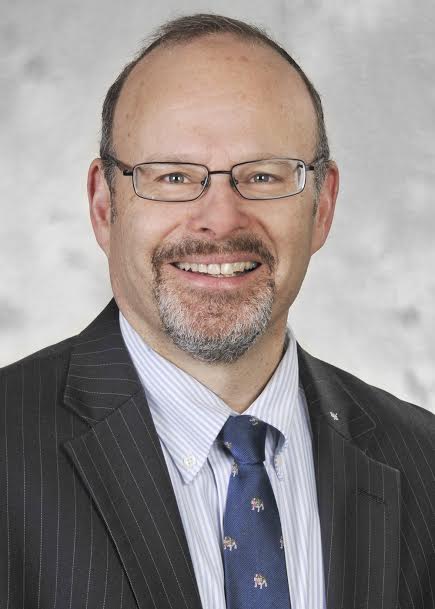Dr. Steven Schechter, the interim chief of colorectal surgery for Lifespan Corp., is a board-certified colorectal surgeon at University Surgical Associates with special expertise in laparoscopic, minimally invasive surgery, fecal incontinence, pelvic floor reconstructive surgery and colon cancer.
Schechter’s research interests include rectal cancer treatment, and the link between anal cancer and human papilloma virus in women.
Schechter is a fellow of the American College of Surgeons, the American Society of Colon and Rectal Surgeons and the New England Surgical Society of Colon and Rectal Surgeons, and is a member of the International Society of Laparoscopic Colorectal Surgery.
In advance of colorectal cancer awareness month this March, Providence Business News asked Schechter about prevention and screening for the disease.
PBN: What is the proof that colorectal cancer screening works?
SCHECHTER: Colorectal cancer screening provides an opportunity to detect and treat the disease early in its development. This gives the physician the ability to cure the patient and prevent the need for intestinal surgery and/or radiation with chemotherapy.
The American Cancer Society has reported that the incidence of colorectal cancer has declined at least 30 percent from the years 2004 to 2013 for individuals who are 50 years and older. Much of this is due to aggressive colorectal cancer screening. Unfortunately, there has been a 20 percent increase in colorectal cancer in people younger than 50 years of age who are under the radar for colon cancer screening. Rectal cancer has accounted for a majority of these cases in young people under 50.
PBN: Who needs to have a screening colonoscopy?
SCHECHTER: People’s risk for developing colorectal cancer is determined by both genetic factors as well as environmental factors, such as diet. The estimated number of new cases of colorectal cancer for 2018 is 140,250 with 50,630 deaths. Basically, one out of 21 men and one out of 23 women will develop colorectal cancer in their lifetime. The current guidelines for colonoscopy requires the test to be performed at age 50.
This is when people start developing colon polyps. Colon polyps, in many cases, grow slowly over five to seven years and can develop into colorectal cancer. We know now that African-Americans are at a greater risk of developing colorectal cancer at an earlier age and screening needs to begin at 45 years of age.
PBN: Is a colonoscopy painful?
SCHECHTER: No. Colonoscopy has been perfected over the last 40 years and is the most safe and effective method of preventing colorectal cancer. Patients are instructed to be on a liquid diet the day before and then take 64 fluid ounces of a flavored clear liquid [such as] Gatorade or Power Ade (alternatives have been selected for patients suffering from diabetes) along with a laxative compound. There are special premixed drinks available on the market as well. The following day, the colonoscopy is performed in a hospital or surgical center.
The sedation the patient receives is quite effective in keeping them comfortable. The colonoscopies used today are soft and gentle on the large intestine and are placed through the anal opening while the patient is lying on their side asleep. The colonoscope examines the entire colon. The patients usually only lose a day of work.
PBN: How often does someone need to undergo a colonoscopy?
SCHECHTER: Patients should have a colonoscopy every 10 years. If they are found to have polyps, then depending upon the number and/or type of polyp, they may need a repeat colonoscopy in three to five years. People with a strong family history of colon cancer and or polyps need to undergo a colonoscopy every five years.
There are many inherited genetic factors that can lead to the development of colorectal cancer faster than in the general population. One such disease is called hereditary nonpolyposis colorectal cancer, or more colloquially called Lynch syndrome after its founder Henry T. Lynch, professor of medicine at Creighton University in Nebraska in 1966.
These patients are certain to develop colorectal cancer in their lifetime. Patients with this disorder have several other associated cancers in different organ systems [such as] uterine, gastric and kidney, among others. These patients need to have a screening colonoscopy every one to two years and have been recommended to undergo removal of a significant portion of their colon.
PBN: To what degree are colonoscopies covered by insurance?
SCHECHTER: Colorectal cancer screening tests are required to be covered under the Affordable Care Act. Unfortunately, this does not apply to all health plans and you need to find out from your insurance plan what the cost of a colonoscopy is in terms of out-of-pocket expense. Different deductibles may apply. You need to be careful to make sure your physician and/or facility that the colonoscopy is being performed at is in your health plan’s network. If not, you may be charged extra.
There are two important terms you must know. The colonoscopy could be classified as screening or diagnostic. Although screening colonoscopies are often covered, those that are diagnostic may not be. A diagnostic colonoscopy is done because of a problem such as abdominal pain, rectal bleeding or anemia (low blood count). Medicare covers a screening colonoscopy completely. If a small polyp is removed, the colonoscopy is no longer a screening test and therefore a co-pay will be added (you still do not have to pay the deductible). Medicaid coverage for colorectal cancer screening varies by state.
You can be proud of Rhode Island because the [R.I.] Department of Health has created the Rhode Island Colorectal Cancer Advisory Committee, which has focused on underserved, underinsured populations in Rhode Island. They are striving to have 80 percent of people who are at risk for colorectal cancer in Rhode Island to be covered by 2018. This committee is seeking to address the disparities in colorectal cancer screening.
PBN: Have there been any advances in colorectal cancer screening recently?
SCHECHTER: There have been a number of improvements in the pre-colonoscopy cleanout and equipment [such as] safer and more-effective colonoscopes as well as high-definition LCD screen monitors. Doctors are picking up smaller and flatter polyps that have been difficult to find in the past. The virtual colonoscopy, or CT colonography, is performed with the patient getting an imaging study known as a CT scan of the abdomen and pelvis.
Computer reconstruction abilities allows the final study to be nearly equivalent to the ability of a colonoscope to find polyps. The only downside is that a biopsy cannot be performed to remove the polyp. The advantage of this special imaging technique is that patients who are on blood thinners, because of heart disease and strokes, can take advantage of this screening method. This test is covered by insurance but needs special prior authorization.
The cologuard test is a new test that patients can simply put their stool in a special container and send it off in the mail. The test involves looking at pieces of DNA that are found in the stool from cancer or polyps. This is a special noninvasive screening method that is FDA [Food and Drug Administration] approved. You will need to ask your doctor if this test is reasonable for you. Cologuard is covered by Medicare, but private insurance coverage can vary by plan.
Contact your primary care provider to discuss colon cancer screening and whether or not you need to undergo a colonoscopy. He will refer you to an expert such as a gastroenterologist, colorectal surgeon or general surgeon that has been trained in this procedure. Going to the American Cancer Society website is also an excellent place to start.
Rob Borkowski is a PBN staff writer. Email him at Borkowski@PBN.com.













